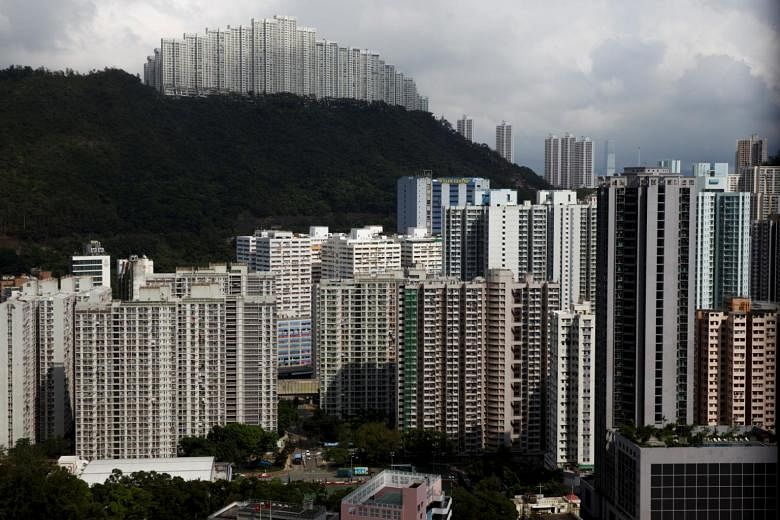HONG KONG • On a recent sweltering Sunday afternoon in Hong Kong's Sha Tin district, not long before police battled protesters with tear gas and rubber bullets in several locations nearby, eager home buyers queued for hours.
They were there to view mock-up apartments for an 840-unit development currently under construction, and many liked what they saw. Subscriptions exceeded the number of apartments on offer by 24 times, thanks in part to prices that were 10 per cent lower than comparable homes in the area.
Hong Kong's worst political crisis in decades has stunned the world with near-daily scenes of violent anti-government demonstrations. People turned out in force to march despite heavy rain at the weekend.
But, so far at least, the turmoil has done little to dent the city's passion for real estate. Even as some protesters rail against stratospheric housing costs, there are plenty of bargain hunters willing to bet that prices will not fall much in an economy with record bank deposits and a chronic lack of supply.
"If the project is appealing, the customers will come out for sure. This project's location is ideal and the pricing is attractive," said agent Tony Cho of Centaline Property Agency, who was soliciting potential buyers outside the show flat.
That property should remain largely unscathed by an episode that set off a stock-market swoon and heaped damage on various sectors of the economy might sound counter-intuitive, especially given that Hong Kong has the world's least affordable housing. Embattled leader Carrie Lam has warned of the city sliding into an "abyss", and says economic damage could be worse than that during the deadly Sars virus outbreak in 2003.
But market watchers point to several factors, some unique to the city, that serve to prop up prices - including, in a roundabout way, the protests themselves.
Two months after a proposed extradition law triggered mass protests, overall housing prices are marginally above where they stood when the unrest started. Centaline's main property index hit a record in late June, and has since retreated 1 per cent.
Bank of America's Mr Karl Choi has one of the more bearish market forecasts, predicting a 10 per cent short-term price drop because of the protests, similar to a short-lived slump last year.
Several other analysts are calling for single-digit declines.
In Mr Choi's analysis, the overwhelming housing supply shortage - about 38,000 units over the next six years by one estimate - puts a cap on the scope for price weakness. As Mrs Lam moves to shore up popular support, Mr Choi expects that she will free up more land for public housing. That means less private-market supply, which could prop up prices.
That is not to say the market is breezing past the unrest. Just this week, developers including CK Asset Holdings and Sun Hung Kai Properties decided to postpone sales of new multibillion-dollar projects. And transactions in the secondary market are down sharply, especially for luxury homes.
Meanwhile, Billion Development & Project Management, which owns the project that was marketed in Sha Tin, sold all units on offer last Saturday, the first day of taking firm orders. The developer said it expects to announce the sale plan for the next batch of apartments this week.
"It is true that people have a strong demand for homes - it is a fact," the company's director of projects, sales and marketing Anthony Poon said before sales started.










